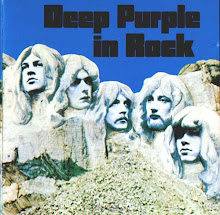A tavern by the sea
A distant glimmer,
A beacon spitting light
Into the black face of the night.
Everything is brine and yearning.
Winds with waves on their backs
Make tremble the tavern
Which is an anchored ship.
Love, passionate and brutal,
Amidst the bare knives
And the abandon
Of a prostitute's embrace.
Bottles, glasses, bottles....
Oh, the thirst of a sailor!
Tattooings pricked on skin
Proclaim the pain and the bravado
Of escapades in foreign ports.
Men of every race,
Men without homeland or name
- Just men of the sea,
With voices of salt and wind,
And ships in their unclouded eyes.
Boredom and Regret appear,
Chewing on aged pipes....
Appear and then depart,
Staggering home with a drunk.
Cards, tables and chairs,
Bottles, glasses, bottles,
And the tavern-keeper's face
Stirring up ancient quarrels.
And everything is full of sin
And everything is full of sleep
And everything is full of the sea.
Aguinaldo Fonseca (1922- )
Update: The Practically-Perfect-In-Every-Way OMG has very promptly answered my challenge to root out the original of this. In fact, she managed to find a Spanish version, as well as the original Portuguese. They are now available to read in the comments below. Do check them out.
Oddly enough, this translator omitted two lines (after the verselet about embracing the prostitute): "Despair spirals in the air/ In dense coils of smoke."






10 comments:
Well, here it is in Spanish.
TABERNA DEL LITORAL
Una lucecilla distante
Y um farol escupiendo luz
En la negra cara de la noche.
Todo es salado y nostálgico.
Vientos con olas en las costas
Hacen temblar la taberna
Que es un navío encallado.
Amor intenso y brutal
Entre navajas abierta
Y el abandono
De una ramera entre los brazos.
Andan en el aire desesperaciones
En densas volutas de humo.
Botellas, vasos, botellas
Ay la sed del marinero…
Tatuajes picando la piel
Gritan el dolor y la braveza
De las aventuras en los puertos.
Gente de todas las razas,
Gente sin patria y sin nombre
Apenas gente de mar.
Con voz de sal y de viento
Y barcos en los líquidos ojos.
Entran el Tedio y la Nostalgia
Mordiendo viejas cachimbas…
Entran y salen después
Llevando, a tumbos, un borracho.
Barajas, mesas y bancos,
Botellas, vasos, botellas
Y la cara del tabernero
Instiga a viejas revueltas.
¡y todo lleno de vicios,
Y todo lleno de sueño
Y todo lleno de mar!
Extraído de POETAS AFRICANOS CONTEMPORÁNEOS, org. Fayada Jamis, Virgilio Piñera, Armando Álvarez Bravo, Manuel Cabrera y David Fernándes. (Traductores). Madrid: Biblioteca Jucar, 1975.
The search for the Portuguese continues... I'm a sucker for a challenge.
Ta da!!!
http://igitur-archive.library.uu.nl/dissertations/2003-0310-101002/pt3c2.pdf
--
I'll leave the copying up to the barman.
Gosh, that was quick. Are you still up?! Quite late at night for you now.
I'll go check out that other link.
'Barman', indeed! Pah!
Yes, here it is. I can't thank you enough.
Curiously enough - just as with the Borges piece you found for me a few months ago - the English version unaccountably omitted a couple of lines ("despair spirals in the air in dense coils of smoke"). Why, why, why?
Here is the Portuguese, then. I must try to find some more work by this writer.
Taberna à beira-mar
Uma luzinha distante
E um farol cuspindo luz
Na cara negra da noite.
Tudo é salgado e saudoso.
Ventos com ondas às costas
Fazem tremer a taberna
Que é um navio ancorado.
Amor intenso e brutal
Entre navalhas abertas
E o desleixo
De uma rameira entre os braços.
Andam no ar desesperos
Em densos rolos de fumo.
Garrafas, copos, garrafas...
-Ai! A sede do marinheiro…
Tatuagens picando a pele
Gritam a dor e a bravura
Das aventuras nos portos.
Gente de todas as raças,
Gente sem pátria e sem nome
- Apenas gente do mar -
Com voz de sal e de vento
E barcos nos olhos líquidos.
Entram o Tédio e a Saudade
Mordendo velhos cachimbos…
Entram e saem depois
Levando, aos tombos, um bêbedo.
Baralhos, mesas e bancos,
Garrafas, copos, garrafas
E a cara do taberneiro
Instigam a velhas revoltas.
E tudo cheio de vícios,
E tudo cheio de sono
E tudo cheio de mar!
Aguinaldo Fonseca
By the way, OMG, is the Spanish for smoke really humo? Not fumo?
So, I checked in an online dictionary. Humo it is. I wonder what the etymology of that is? It seems strange that the noun and the verb would be so disparate.
wow, OMG, you are perfect.
what a treat to compare all these versions.
My sense of the original is hampered by having no idea of how Portuguese (mainstream Portuguese, let alone Cape Verde Portuguese) is pronounced, but.... I rather think the Spanish version might be even better.
I love: Entran y salen después
Llevando, a tumbos, un borracho.
It seemed unnecessary to comment but,
"And everything is full of the sea."
is haunting me with vivid memories. No accident that he leaves us with this last line and a salty taste in our mouths.
It's my pleasure to serve. Remember to tip your waitress. ;-)
A search for this Fonseca fellow will reveal that he had two other fairly famous poems. The names escape me now, but they kept popping up during my search.
I can't explain the difference in the Spanish fumar and humo. Don't have a decent enough Spanish dictionary around here. The online Spanish dictionary I consulted gives the following origins:
fumar (from the Latin. fumāre: humear, arrojar humo)
humo (from the Latin. fumus)
I don't speak the Latin. But it's an interesting question.
As for the pronunciation, I imagine if some Brazilian super model were reciting it, you'd be plenty happy with the Portuguese version.
Post a Comment